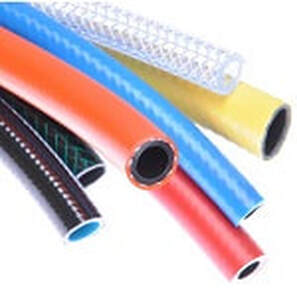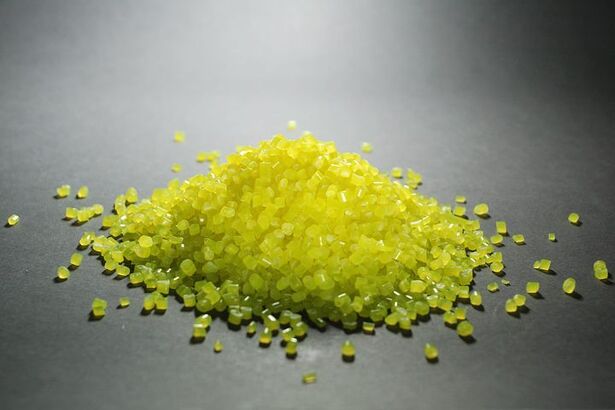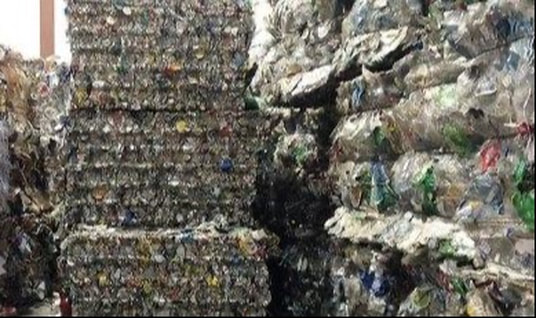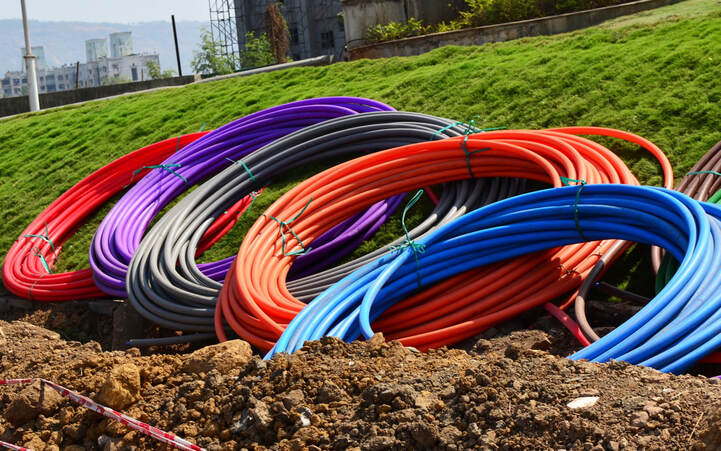Join BHC Associates at Westpack!
January 1, 2021
Everything to Know About Polyethylene (PE)
Everything to Know About Polyethylene (PE)
Polyethylene (PE) is the most common plastic, accounting for 34% of the plastics market with almost 100 million tons produced annually. This thermoplastic has been in large-scale production since 1939 and has many desirable properties that make it perfect for different uses and environments.
Polyethylene is most commonly manufactured using a coordination polymerization process to drive the catalyzation of hydrocarbon groups or monomers. There are seven different types of polyethylene, as classified by their density and branching, that are used in wide variety of applications from packaging and pipes to consumer and medical products. You can read more about polyethylene, its history and uses, as well as its properties and specifications here.
Polyethylene is most commonly manufactured using a coordination polymerization process to drive the catalyzation of hydrocarbon groups or monomers. There are seven different types of polyethylene, as classified by their density and branching, that are used in wide variety of applications from packaging and pipes to consumer and medical products. You can read more about polyethylene, its history and uses, as well as its properties and specifications here.
January 2, 2021
What Is Plastic and Can It Really Be Recycled?
What Is Plastic and Can It Really Be Recycled?
There are seven categories of plastic in use today, each with different properties and uses. Plastics are a synthetic or semi-synthetic polymer and are divided into two main types: thermosets and thermoplastics. Thermosets are produced and formed into a product at the same time and are not recyclable. Thermoplastics are recyclable and usually manufactured into plastic pellets that are then used to create products.
The 7 categories of plastics are: Polyethylene Terephthalate (PETE or PET), High Density Polyethylene (HDPE), Polyvinyl Chloride (PVC), Low Density Polyethylene (LDPE), Polypropylene (PP), Polystyrene or Styrofoam (PS), and miscellaneous plastics. Each category has different properties and recyclability. In the future, new plastic technologies, including plant-based plastics, will help solve the recycling challenge. To read more about the different types of plastics and alternatives coming down the road, click here.
The 7 categories of plastics are: Polyethylene Terephthalate (PETE or PET), High Density Polyethylene (HDPE), Polyvinyl Chloride (PVC), Low Density Polyethylene (LDPE), Polypropylene (PP), Polystyrene or Styrofoam (PS), and miscellaneous plastics. Each category has different properties and recyclability. In the future, new plastic technologies, including plant-based plastics, will help solve the recycling challenge. To read more about the different types of plastics and alternatives coming down the road, click here.
January 3, 2021
Upcycling Plastics Into Usable Carbon/Hydrocarbon Products
Upcycling Plastics Into Usable Carbon/Hydrocarbon Products
After China stopped importing recycled plastics to use in manufacturing, the market for recycled plastics drastically reduced. Researchers are finding new ways to upcycle plastics into more useable forms to help reduce the plastic overload. One new technique invented by an international collaboration uses common iron-based catalysts mixed with ground up recycled plastics. The iron is then heated using microwaves creating a process that yields carbon nanotubes in less than two minutes.
A different group of US-based researchers is working with an artificial catalyst that behaves similar to enzymes. The catalyst is able to act on one end of the polymer only, reducing the complicated mix of chemicals from the reaction. The researchers have been able to “tune” the catalyst to liberate a certain number of carbons, from eight to thirty. By adjusting the length of the carbons resulting from the reaction, different mixtures of fuel or lubricant hydrocarbons can be produced.
To read more about these two research projects, click here.
A different group of US-based researchers is working with an artificial catalyst that behaves similar to enzymes. The catalyst is able to act on one end of the polymer only, reducing the complicated mix of chemicals from the reaction. The researchers have been able to “tune” the catalyst to liberate a certain number of carbons, from eight to thirty. By adjusting the length of the carbons resulting from the reaction, different mixtures of fuel or lubricant hydrocarbons can be produced.
To read more about these two research projects, click here.
January 4, 2021
Shell Is Working to Change the Polymer Industry
Shell Is Working to Change the Polymer Industry
Shell Polymers was launched a few years ago with the goal of changing how the polymer business works using new cutting-edge tools, processes, and systems. The polymer team has been tasked with thinking creatively and out-of-the-box to transform the industry, whether it’s rethinking the best place to locate a production plant or creating a new supply chain that is more efficient and helps alleviate a customer’s stress.
One way Shell Polymers is changing the business is by moving their production plant physically closer to the majority of the polyethylene converter market. Their new plant in Monaca, Pennsylvania will be within 700 miles of the majority (70%) of the US PE converters, reducing delivery time and transportation costs. In addition, the plant will contain an application hall with a revolutionary development lab that PE customers will be able to use to help invent the next big product. It will include commercial-size conversion units for creating different types of film, pipe, and injection and blow molding and will provide technical support for customers.
You can read more about how Shell Polymers is changing the business here. If you need help with your film and sheet design or production, Bryan Hauger Consulting is here to provide knowledge and problem-solving experience to help your company. Learn more here.
One way Shell Polymers is changing the business is by moving their production plant physically closer to the majority of the polyethylene converter market. Their new plant in Monaca, Pennsylvania will be within 700 miles of the majority (70%) of the US PE converters, reducing delivery time and transportation costs. In addition, the plant will contain an application hall with a revolutionary development lab that PE customers will be able to use to help invent the next big product. It will include commercial-size conversion units for creating different types of film, pipe, and injection and blow molding and will provide technical support for customers.
You can read more about how Shell Polymers is changing the business here. If you need help with your film and sheet design or production, Bryan Hauger Consulting is here to provide knowledge and problem-solving experience to help your company. Learn more here.
January 5, 2021
Graham’s ABX Acquires Berry’s Flexible Converting Business
Graham’s ABX Acquires Berry’s Flexible Converting Business
Graham Partner’s Advanced Barrier Extrusions LLC (ABX) will soon complete acquisition of Berry Global Group’s flexible converting business, including six printing and laminating flexible packaging facilities. Before this acquisition, ABX had two flexible packaging plants employing about 100 people to manufacture co-extruded high-barrier films with as many as 11 layers as well as printed rollstock, bags, and pouches. This new deal will combine both groups under the ABX name and allows ABX to expand both geographically as well as in their product offerings and technology. Berry brings new personal and health care packaging as well as more cast and blow extrusion options to ABX.
Current ABX CEO Larry Goldstein worked for Berry for 30 years before leaving in 2018 to join ABX. Goldstein and several other ABX team members were very familiar with Berry and its plants from their time working there, which helped move the acquisition forward despite COVID-19 limiting travel. William Timmerman, managing principal at Graham Partners, said, “Combined, the strong R&D cultures of these two businesses offer exciting possibilities for the future.”
You can read more about Graham’s acquisition of Berry here.
Current ABX CEO Larry Goldstein worked for Berry for 30 years before leaving in 2018 to join ABX. Goldstein and several other ABX team members were very familiar with Berry and its plants from their time working there, which helped move the acquisition forward despite COVID-19 limiting travel. William Timmerman, managing principal at Graham Partners, said, “Combined, the strong R&D cultures of these two businesses offer exciting possibilities for the future.”
You can read more about Graham’s acquisition of Berry here.
© Copyright Bryan Hauger Consulting, Inc., 2018. All rights reserved.




